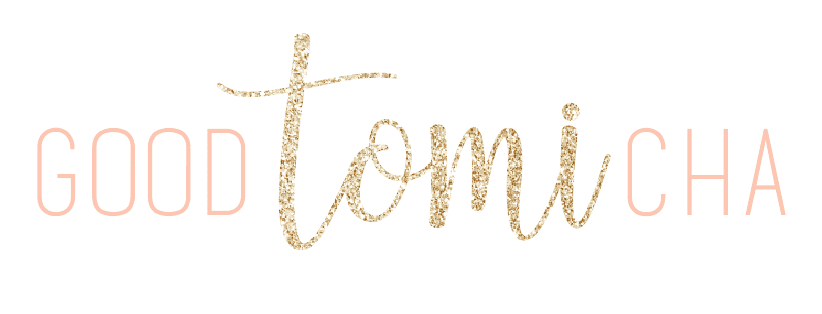

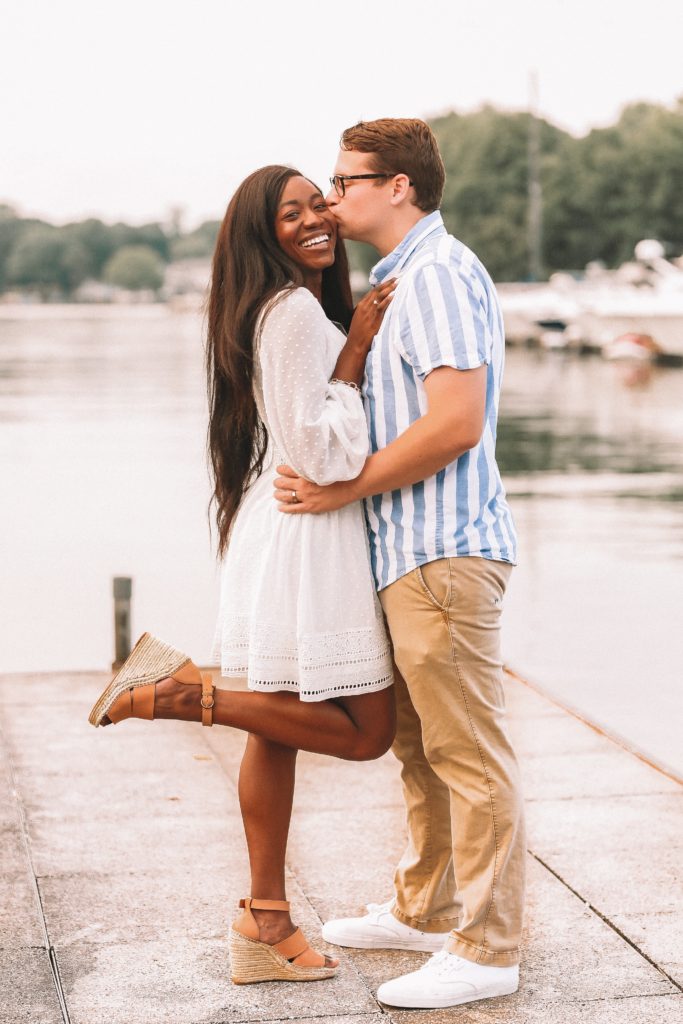

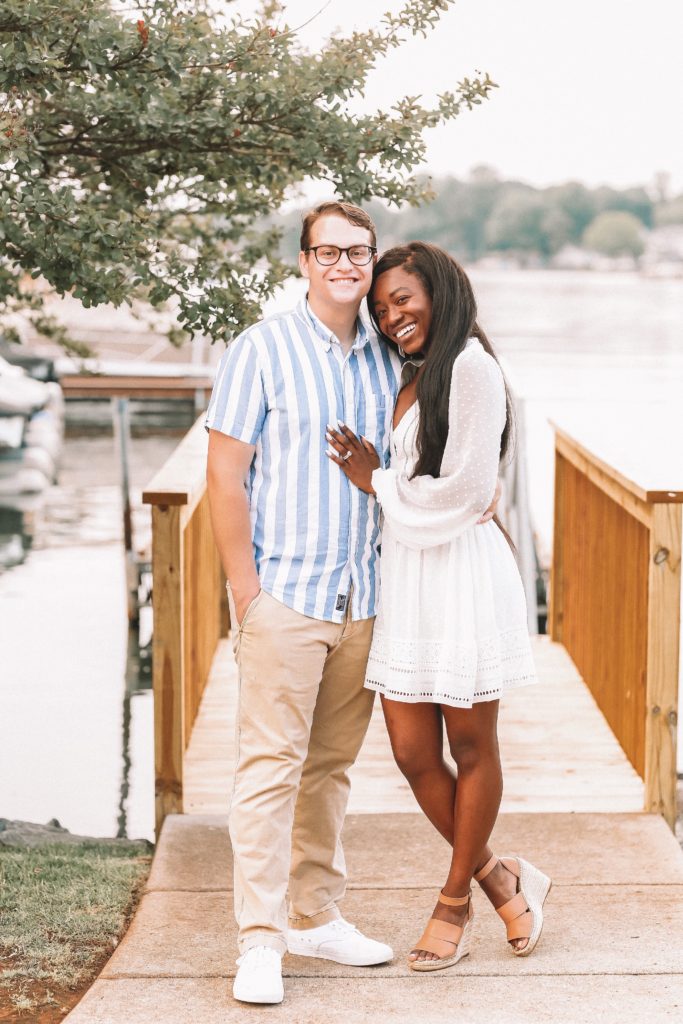
Interracial marriage wasn’t something I worked towards, but mainly the result of my surrounding environment. When I was 5, my family moved from Birmingham, Alabama to small-town Columbus, Georgia. For the first 5 years, it wasn’t uncommon for me to be the only Black girl in my class. I played competitive tennis and sat second chair in the youth string orchestra of Columbus- both not exactly the best places to create a community of color. There were microaggressions, but there was never a time where I truly felt different in school until the dating scene rolled around.
In addition to the fact that all 30 of my classmates were like family at this point, the diversity left something to be desired. I’m sure it became obvious to both of my parents that I’d probably date a white guy before a Nigerian or other man of color, simply because of the numbers. I remember having several conversations with them about the possibility and they always said, “As long as he’s a born-again Christian, we don’t care.”
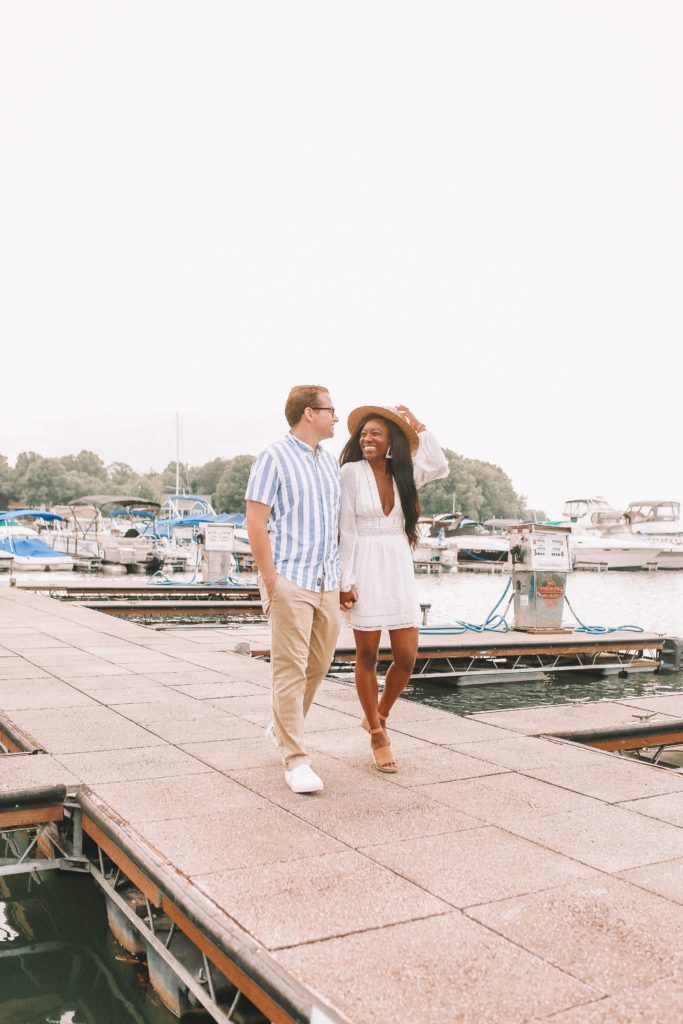
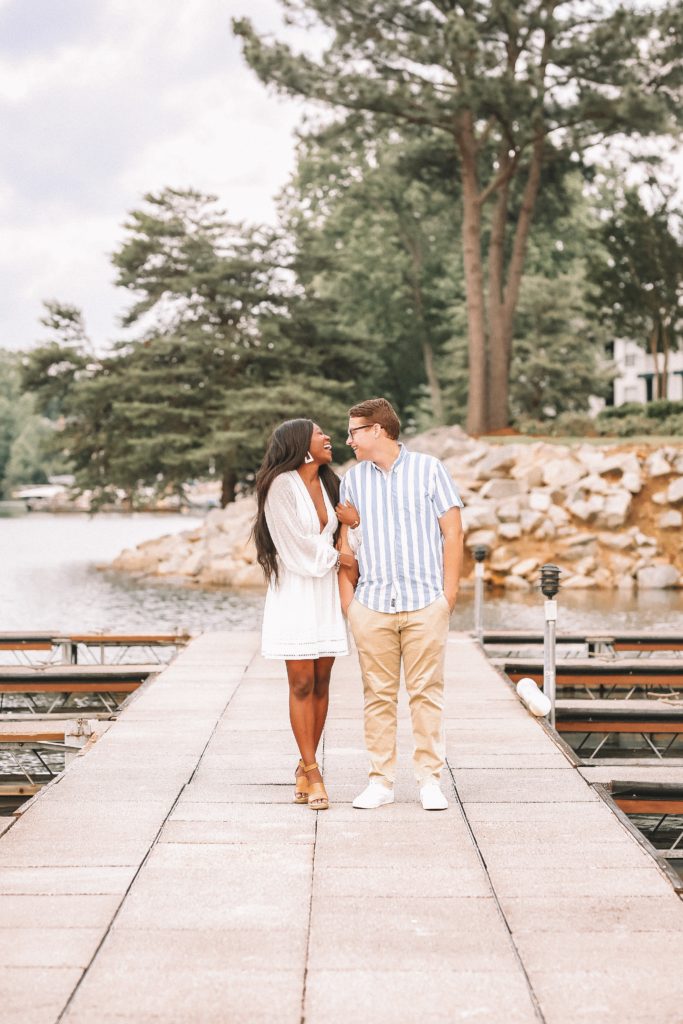
Half-way through my sophomore year of college, I started dating my now-husband, Will. While we talked about race, we would mostly land on our differences in culture as a Nigerian-American. In the future, we even went on to have a beautiful Nigerian engagement ceremony, but I digress. We were both from the south, financially privileged thanks to our hard-working parents, and avid church-goers. In fact, we met in a campus ministry at Auburn. Swoon.
However, after being too naive to believe my race would be an issue in the past, I still made sure to ask the “key questions” at the very beginning of our relationship. Voting history. Thoughts on the n-word. How would their parents respond? What do you think about affirmative action? As a white guy from a suburb outside of Charlotte, I remember being shocked he was so progressive. I thought I had covered all the bases. But as a Black woman who grew up in an upper-class neighborhood, I left off a glaring question of importance.
I was in high school when I first understood how racial inequality was woven into our justice system. Trayvon Martin’s case would play on the tv as my history teacher would mercilessly mock the death of an innocent child. George Zimmerman, a civilian, walking free after going out of his way to murder a little boy he viewed as a threat. It left me stunned for weeks. And as the minority in school, it was difficult to have that realization and speak up in class without having to answer for every single comment about race.
Then came 2014. The murders of Mike Brown and Eric Garner were making the headlines. I was in college now and felt relief wash over me as I was finally able to speak my mind, sign petitions, and peacefully protest on Auburn’s campus, demanding change. As hundreds of students laid on the concourse to represent the time that Garner was left without aid in the street, one white student took it upon himself to make his own statement. He dramatically skipped right down the middle of the walkway, making sure to step on as many people as he could.
As I relayed this to Will (my boyfriend of only a few months at the time), he started to chuckle. “Wow, what a jerk,” he stated. But I didn’t find it remotely funny. In fact, it was triggering to me and brought back all of my past trauma of being surrounded by people who truly didn’t “get it” and by extension, get me. After days of silence, he reached out to me with a sincere apology and sadness in his voice. “It’s not an excuse, but I was so uncomfortable with the entire conversation, I laughed. I want to understand and I want to be better.” From that point on, we vowed to have more honest conversations about race.
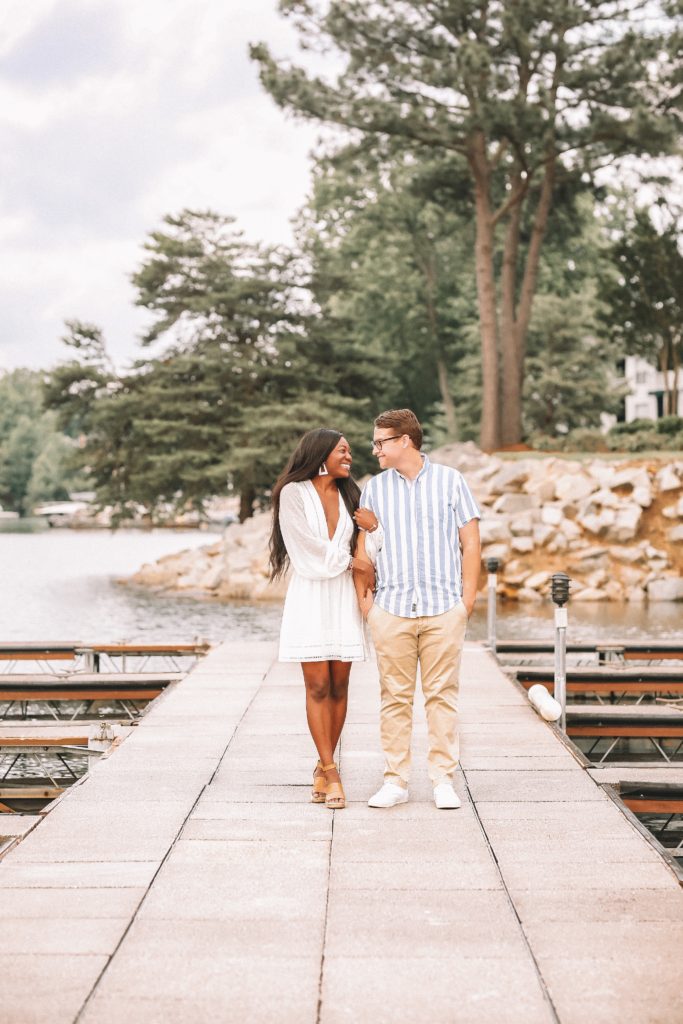
In any relationship, you have to work to communicate your beliefs and differences, but your identity shouldn’t be one of them. I’ve never felt ashamed to talk about my hair or politics with him because he’s my partner. However, I can understand the skepticism. Think pieces surrounding Black men and their attraction to white women as proximity to privilege were always interesting to me, but I never thought about it in the reverse. Actually, Black women are the demographic least likely to get married in the US. So I’m here to celebrate Black women being loved and loved out LOUD, regardless of their partner. Many Black women have told me they fear to date outside of their race because they don’t want to be fetishized, and it’s true. In preparation for writing this post, I was googling interracial marriage and half of the results were related to porn.
I’m also dreading when we decide to have kids down the line. Yes, because Black women are 3x more likely to die from childbirth in the US but also because of our society’s views on Black and white kids. People are obsessed with mixed babies- either to be the saviors of racism or because they think they’ll get the “good traits” from each parent. And while both of those reasons are problematic enough in themselves to warrant a completely separate blog post, they’re hardly the reason I’m in an interracial marriage. In the end, I married Will because of love, not because he was white.
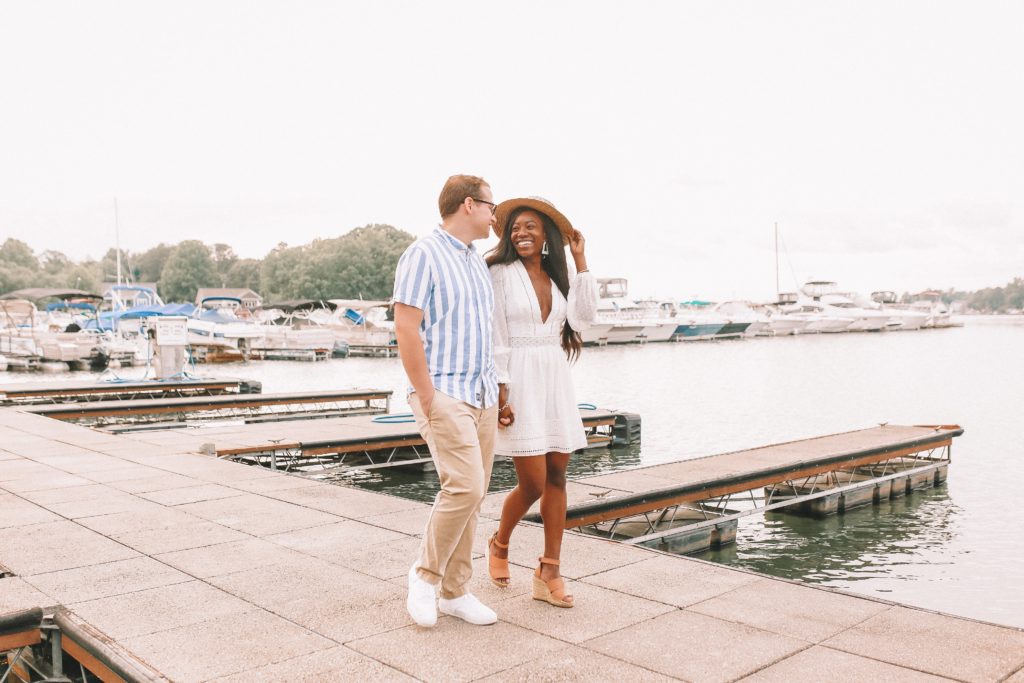
Our journey as an interracial couple and now marriage was so important for me to share. It’s proof that it’s possible for people to grow and change! But it’s also important to highlight that race is an ongoing conversation. I wish I could say that it was at that exact moment in 2014 that everything was perfect, but it’s not the case. I thought I’d covered all of the heavy topics while going into the relationship, but we’re still learning.
Racism in America is so much more complex than the average person realizes. It’s designed into the very fabric that built this country from the ground up. Racism isn’t just calling someone nigger or lynching them from a tree. It’s denying Black people access to the best public schools because of redlining. Or leaving Flint, Michigan without clean water for years on end. It’s the assumption that the Black woman that got the promotion was the result of “office politics” and not the fact that she’s qualified and hard-working. Or using your faith as a reason to stay silent in the face of injustice. And it’s Black Americans being 2.5x more likely to be killed by police.
We are the Loving v. Virginia case’s wildest dreams. Surrounded by nothing but support and love from those closest to us. However, there are key people in my husband’s family that I haven’t spoken to since this all began. Not a call. Or a text. Not even a Facebook post or a black square. And unfortunately, there are a few “friends” I could say the same for. The same who attended my wedding and say “they don’t see color”, refuse to fight for my right to live. And I can’t accept that. I used to be quiet about my experience as a Black woman in America and I refuse to go back.
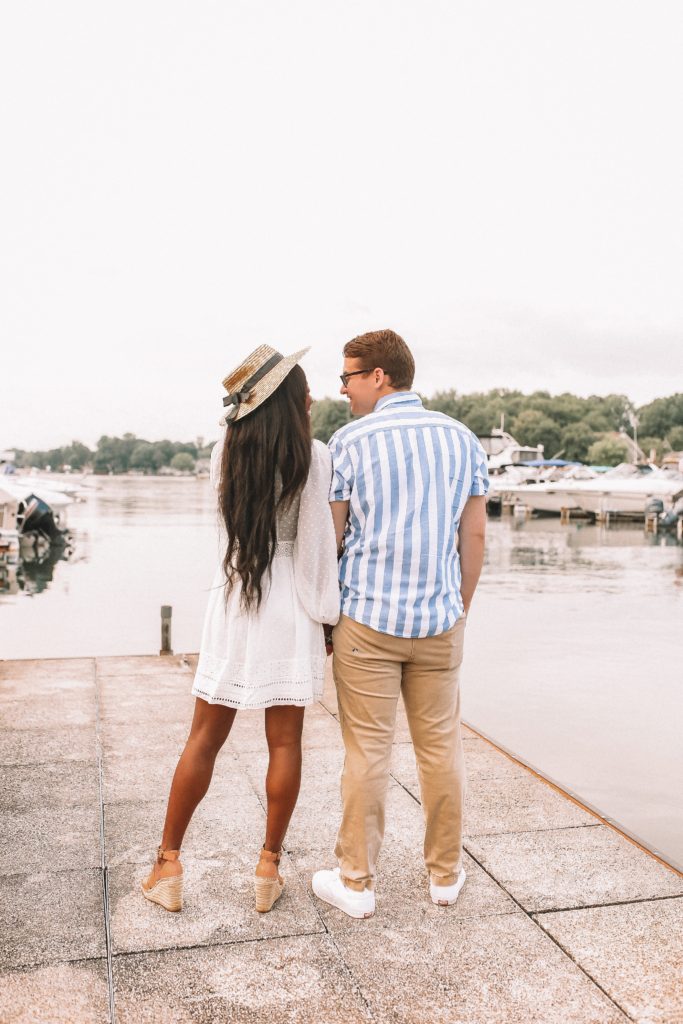
I’ve learned so much in the past 5 years of my life through college and social media. But I’m proud to say my husband and I have grown together. After that incident in 2014, our conversations were better but hardly as deep as they needed to be. We even did premarital counseling that included how we wanted to raise and discipline kids, money management, and the differences between our families culturally (ie. Faith or communication styles) but hardly talked about the obvious. So while we’ve always been on the same page, we’ve rarely discussed the why or the HOW we can fix it, until now.
If I could give advice to those in interracial relationships, read books like “White Fragility” or “The New Jim Crow” together, and discuss your thoughts. This book that I mentioned in my previous blog post is such a great starting point because it really hits every major topic surrounding race in America and comes with a discussion guide!
I hate that it took these circumstances, but thankful that I have a partner that supports, listens, and fights for me. In a recent Instagram post, I shared, “I love being a Black woman. I love the influence of my culture. I love the versatility of my hair, my chestnut eyes, and my natural big lips. I love my melanin glowing in the sun and when I wear the color yellow (or any color really ). And I want others to see the beauty I see in my people every single day.” I’m hopeful this movement is going to bring about the change we all wish to see. Until then, I’ll be faithfully fighting for equality with my husband by my side.
Facebook | Twitter | TikTok | Instagram | Pinterest | YouTube
You Might Also Like… 20 BLACK INFLUENCERS TO FOLLOW IN 2020 and 25 BRANDS THAT BELIEVE IN INCLUSION
Thank you for this! I was wondering if you would do a post maybe collaborating with fellow black influencers discussing your travel experiences in different countries and racism you’ve experienced there? I would find it really insightful.
I would check out @hey_ciara on Instagram. She makes a point to share her experiences traveling solo as a black woman! I love her stuff.
Thank you for sharing Tomi! As a fellow black woman, I’ve also understood the challenges that could come with interracial dating. A lot of these are questions that I’ve also ask. And although it might not be the most comfortable conversation, we can’t afford to not have them.
Real love. So blessed. Article is open with great recommendations for everyone.
Thank you. This was very insightful, as well as vulnerable of both you and your partner. I’m a white middle-aged Gma, so I know I’m not your target demographic :), but have followed you for a couple years, not just because of your awesome sense of style and fellow love for the Carolinas, but also for your honesty and free spirit.
I’m sorry you haven’t heard from people you had hoped to. For what it’s worth, I haven’t reached out as much as I had hoped to others as well, and that is wrong of me. I’m not much of an IG and FB poster other than pics of grandkids and vacations, so I couldn’t figure out how to post a black square. And I also was fearful of saying the wrong thing if I put words out there; I didn’t want to cause more pain even if my intentions were good. And I didn’t want to burden my black friends by asking them more questions (many have posted that they are overwhelmed and for us white people to educate ourselves). So I stayed silent and kept educating myself, and having challenging conversation with family and white friends. For not speaking out more, I am sorry. Thank you for being you. I hear you. I see you. And I want to keep listening.
Thank you Sheila! And I think saying something close to what you shared is good. Just be an honest and say that you’re scared to say the wrong thing but you support the black people in your life and in this country. Showing up imperfect is better than not showing up at all. ❤️
This is a powerful post and so insightful! Thank you for taking the time to share your thoughts (and relationship!) with us :)
Thank you for reading!
Really happy that you posted this! My relationship mirrors yours in terms of race and this couldn’t have been more relatable. Thank you for sharing this, thank you for your transparency. <3
That makes me so happy. I wish I had read something like this years ago to help get these conversations started earlier!
Fucking LOVE this Tomi! Great read.
Thanks, Kels!